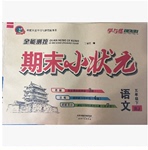题目内容
One day an out of work mime (哑剧演员) was visiting the zoo and attempted to earn some money as a street performer. As soon as he started to draw a 50 , a zoo keeper grabbed him and dragged him into his office. The zoo keeper explained to the mime that the zoo’s most popular attraction, a gorilla, had died suddenly and the keeper feared that 51 at the zoo would fall off.
He offered the mime a job to 52 the gorilla until they could get another one. The mime53 .
So the next morning the mime put on the gorilla suit and entered the cage before the crowd came. He discovered that it was a 54 job. He could sleep if he wanted, play and 55 people and he drew bigger crowds than he ever had as a mime. 56 , eventually the crowds got tired of him and he got tired of just swinging on tails. He 57 to notice that the people were paying more attention to the lion in the cage next to his. Not wanting to lose the attention of his audience, he climbed to the top of his cage, crawled across a partition (隔墙), and dangled (悬荡) from the top to the lion’s cage. Of course, this made the lion very angry, but the crowd 58 it.
At the end of the day the zoo keeper came and gave the mime a 59 for being such an attraction. Well, this went on for some time, the mime kept 60 the lion, the crowds grew larger, and his salary kept going up. Then one terrible day when he was dangling over the angry lion he slipped and fell. The mime was 61 .
The lion gathered itself and prepared to pounce (猛扑). The mime was so scared that he began to run round and round the cage with the lion close 62 . Finally, the mime started screaming and yelling, “Help me, help me!”, but the lion was quick and pounced. The mime soon found himself flat on his back looking up at the angry lion and the lion said, “ 63 you fool! Do you want to get us both 64 ?”
50. A. ticket | B. profit | C. crowd | D. lesson |
51. A. reputation | B. cost | C. confidence | D. attendance |
52. A. take care of | B. dress up as | C. make up for | D. keep up with |
53. A. declined | B. hesitated | C. accepted | D. doubted |
54. A. great | B. demanding | C. meaningless | D. busy |
55. A. make fun of | B. communicate with | C. cooperate with | D. take advantage of |
56. A. Surprisingly | B. However | C. Therefore | D. Additionally |
57. A. failed | B. refused | C. managed | D. began |
58. A. loved | B. feared | C. forgot | D. excused |
59. A. warning | B. direction | C. raise | D. punishment |
60. A. fighting | B. insulting | C. boring | D. frightening |
61. A. caught | B. attacked | C. terrified | D. offended |
62. A. behind | B. ahead | C. beyond | D. aside |
63. A. Hurry up | B. Get up | C. Wake up | D. Shut up |
64. A. helped | B. killed | C. favored | D. fired |
CDBCA ABDAC BCADD

 全能测控期末小状元系列答案
全能测控期末小状元系列答案One day an old woman was traveling alone in the mountains. Suddenly she saw something shining in the stream. When she came close, she found it was a precious stone. She put the stone into her bag and went on with her trip.
The next day the old woman met a young man, who was also a traveler in the mountains. The young man looked very hungry, so the old woman opened her bag to share her food. The hungry traveler saw the precious stone and asked carefully, “The stone is beautiful. Would you like to give it to me?”
“Sure. Why not?” the woman said, and handed the stone to him.
The young man left happily with the stone. He knew it was worth enough to give him security for a lifetime. But a few days later he came back to return the stone to the woman.
“I’ve been thinking,” he said. “I know how valuable the stone is, but I give it back and hope that you can give me something even more precious. Give me what you have within your bag.”
The woman opened her bag. It was almost empty. She looked at the young man and smiled, “I have nothing special in my bag, but I do have something precious — the joy of giving!”
The young man felt ashamed and left silently.
【小题1】How did the young man find the precious stone?
| A.He found it in his food. | B.He dug it out in a valley. |
| C.He saw it in the woman’s bag. | D.He noticed it shining in the stream. |
| A.Money. | B.Worry. | C.Health. | D.Trouble. |
| A.he found the stone was not precious |
| B.he understood the real meaning of joy |
| C.he felt embarrassed at taking away the stone |
| D.he wanted to get something even more precious |
| A.A special stone | B.The joy of giving |
| C.A woman and a young man | D.An experience in the mountains |